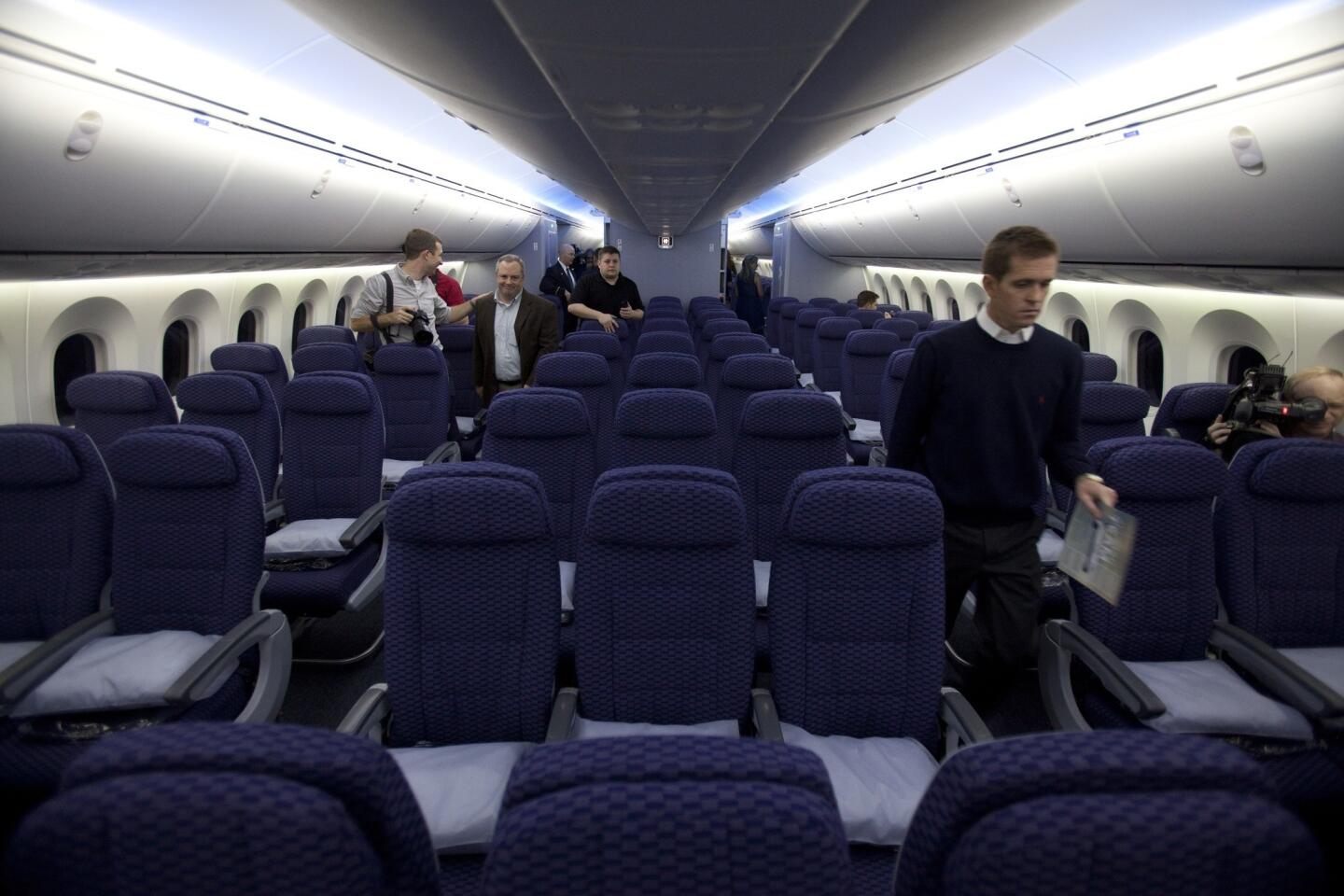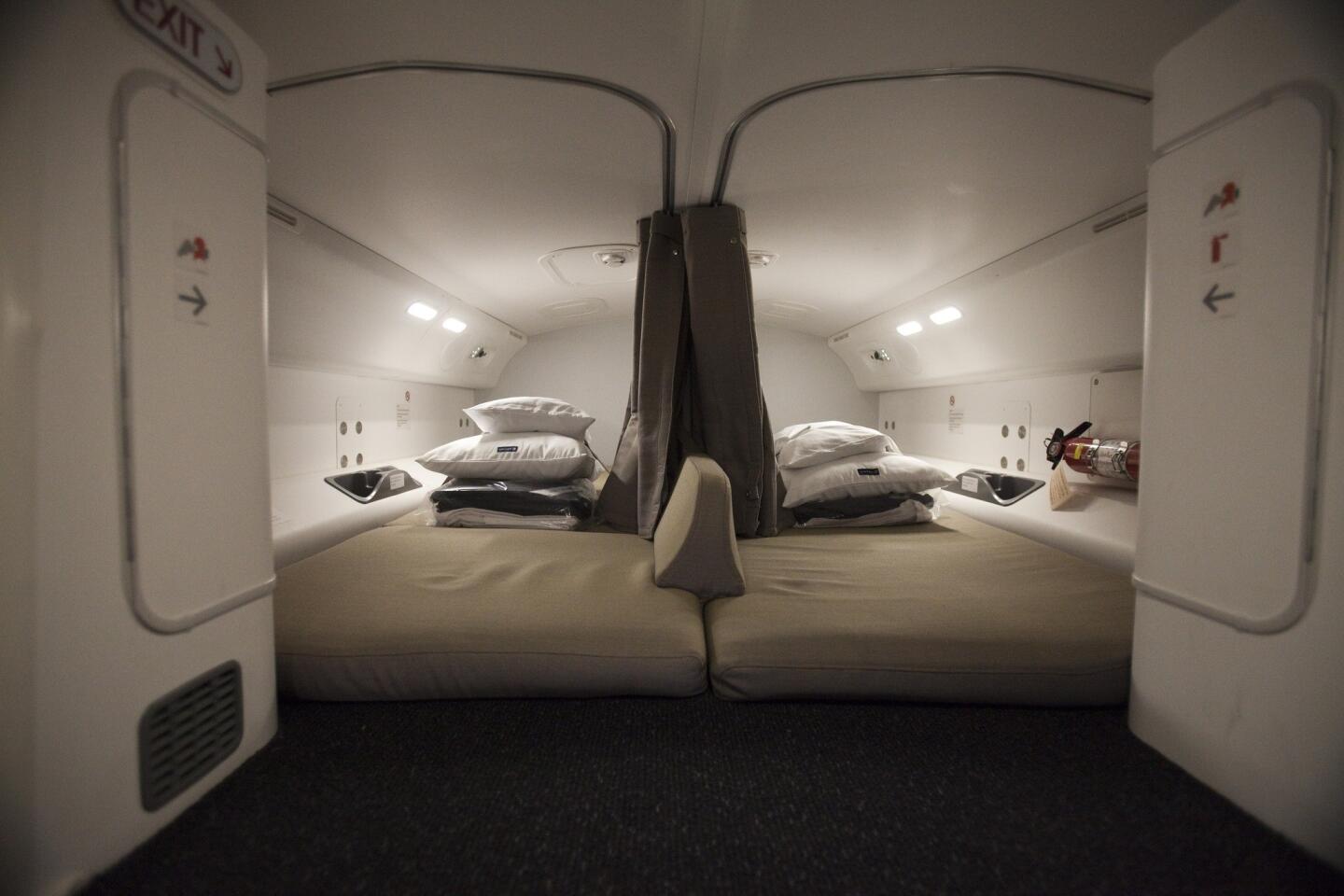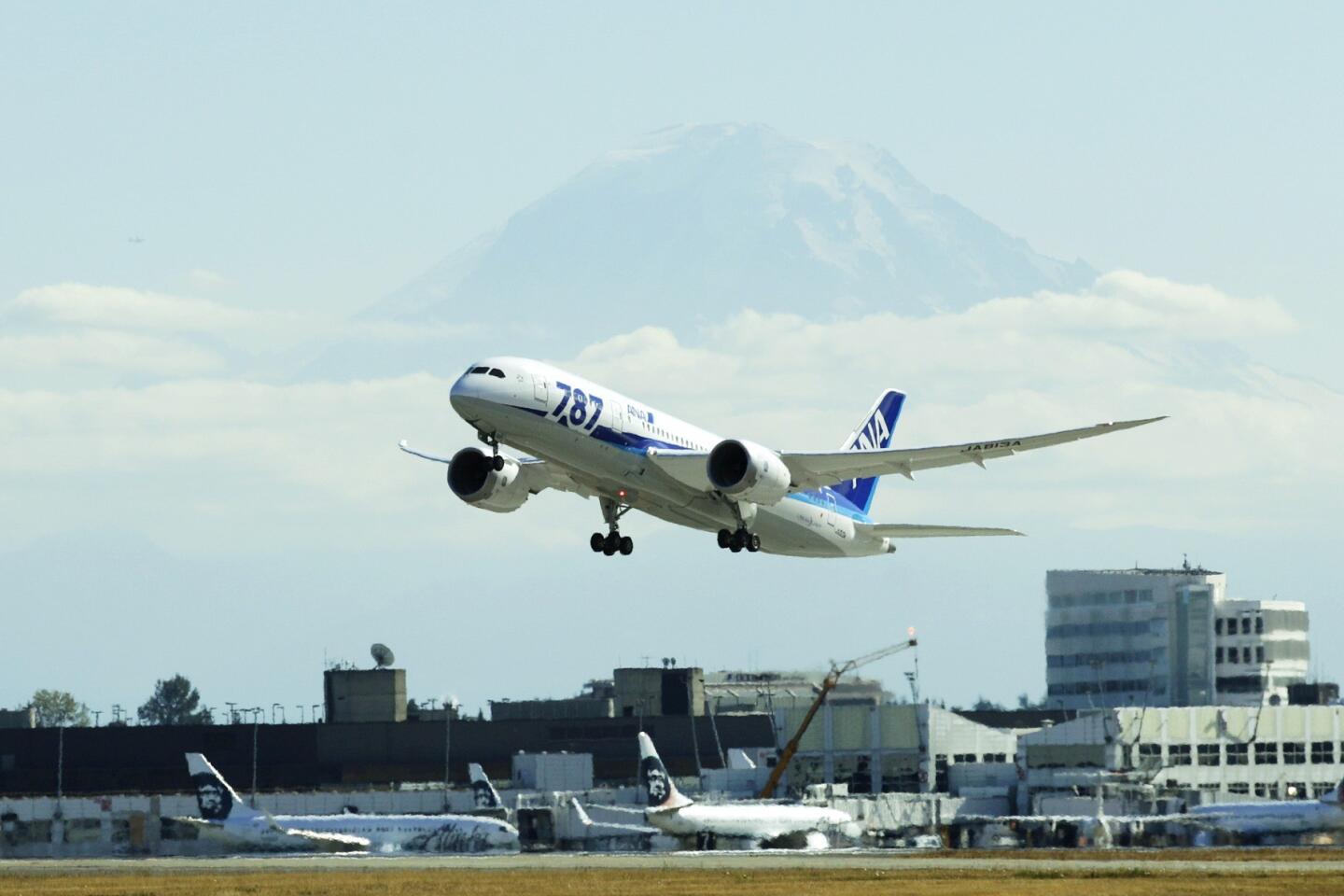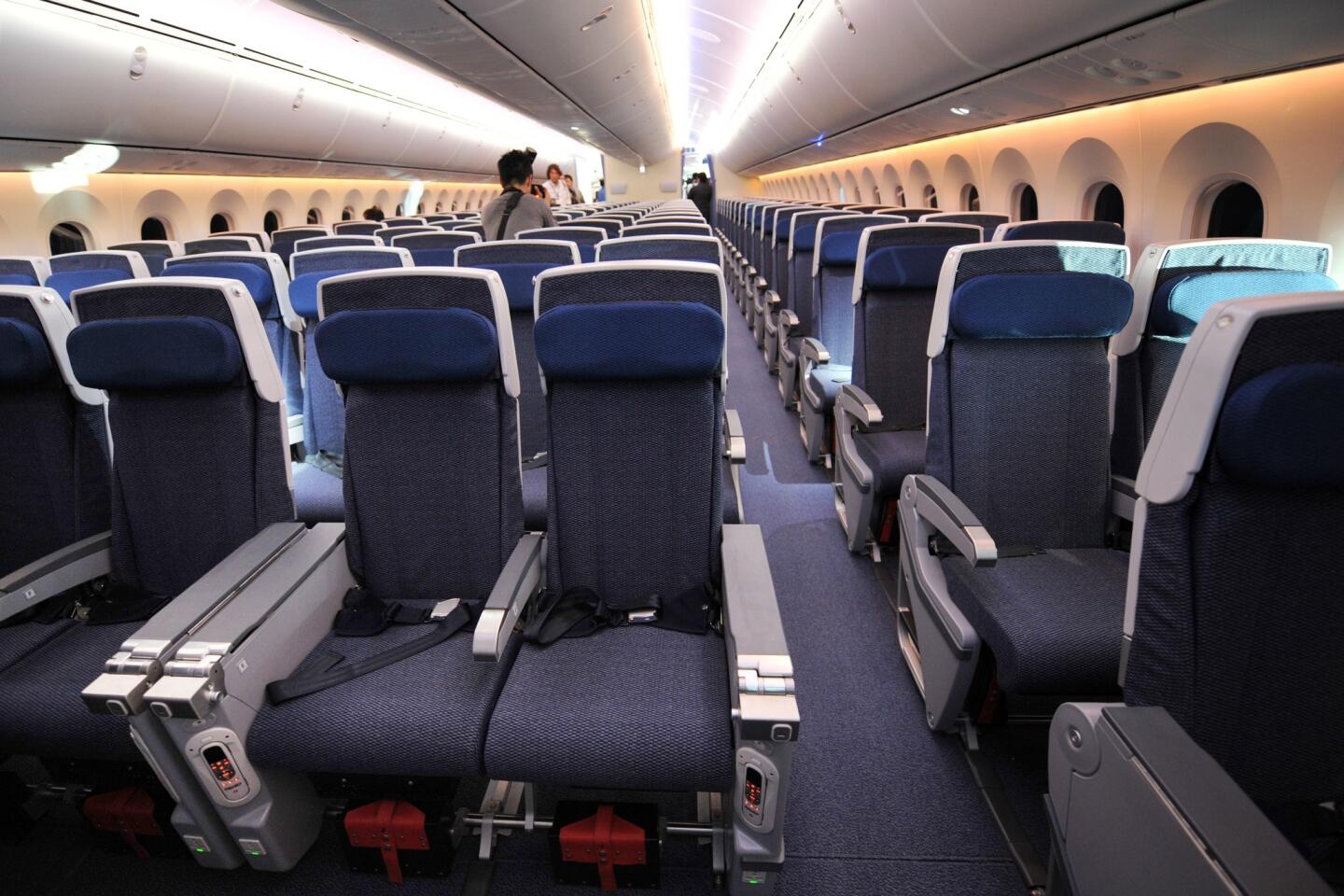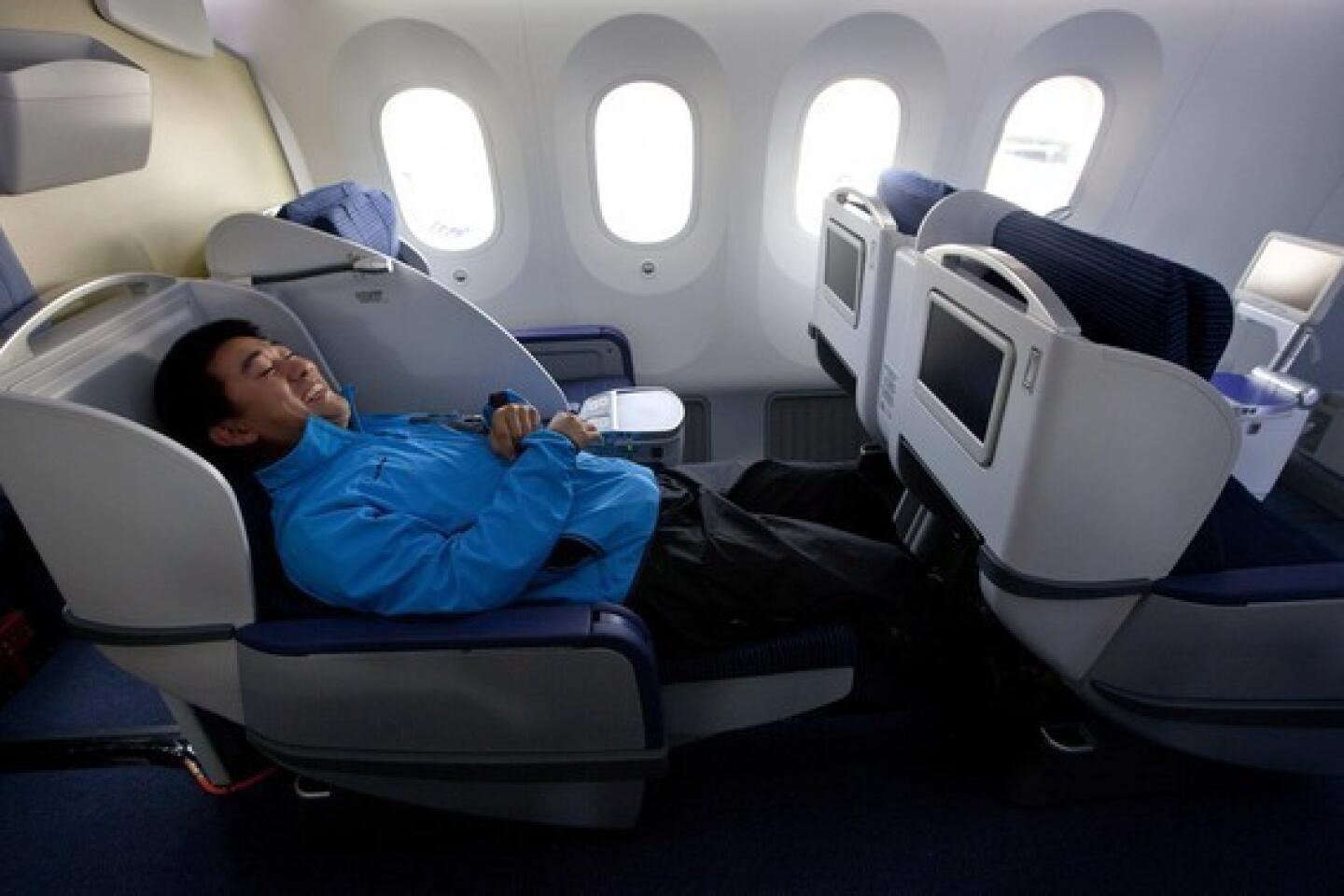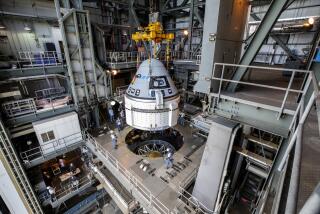Boeing plans on 787 Dreamliners to be airborne ‘within weeks’
With a new plan to fix the problem-plagued lithium-ion battery systems on its grounded 787 Dreamliner passenger jets, Boeing Co. said the fleet should be airborne again within weeks.
The aerospace giant’s plan to fix to the 787 battery system involves insulating and spacing out parts, reducing charging levels so the battery cannot be overcharged and enclosing the lithium-ion batteries in stainless-steel cases so very little oxygen can get at them.
FULL COVERAGE: Boeing’s troubled Dreamliner
Boeing revealed its planned fixes Friday morning in Tokyo (Thursday night Pacific time), and later provided details to reporters.
Ron Hinderberger, Boeing’s vice president for 787-8 engineering, said in a conference call that the fixes have already undergone testing and that those tests should conclude in “the next week or two.”
Boeing officials addressed concerns about the company’s new flagship jet, which has been grounded worldwide since Jan. 16, after two overheating incidents within two weeks involving the battery systems.
The redesign removes any risk of a fire breaking out within the battery system, the company said.
“The enclosure eliminates all possibility of a fire,” said Mike Sinnett, chief project engineer for the 787 program. “A fire can’t begin, develop or be sustained.”
The proposal has already won approval from the Federal Aviation Administration, and Boeing said it believes that the fix could be applied to the planes in “weeks.”
Boeing has delivered 50 787s to eight airlines worldwide. Six are owned by United Airlines -- the only U.S. carrier that has 787s in its fleet.
But all 787s have been grounded since a battery fire broke out Jan. 6 on a 787 operated by Japan Airlines at Boston’s Logan International Airport and then a second battery incident occurred 10 days later on an All Nippon Airways flight in Japan.
The 787’s battery system, which is made in Japan by Kyoto-based GS Yuasa Corp., contains a cluster of eight individual cells packaged together in one box.
The National Transportation Safety Board has been investigating the matter, as have officials from Boeing, the FAA, the Navy, Japan and France.
Not one of them has found a root cause for the incidents.
“We may never get to the single root cause,” Sinnett said. “But the process we have applied to understanding what improvements can be made is the most robust process we’ve ever followed in improving a part in history.”
Boeing has taken a total of 890 orders for the Dreamliner from airlines and aircraft leasing firms around the world. Depending on the version ordered, the price ranges from $206.8 million to $243.6 million per jet.
The Chicago-based company currently is making five Dreamliners a month, and plans to reach 10 a month late this year.
The company said in a recent financial statement that it expected “no significant financial impact” from the 787 grounding this year, even though it will not deliver any new 787s as long as the plane is grounded.
ALSO:
Southland aerospace firms brace for defense cuts
Northrop to close Carson facility in cost-cutting move
SXSW: Elon Musk discusses hovering rocket, Mars and that NYT review
More to Read
Inside the business of entertainment
The Wide Shot brings you news, analysis and insights on everything from streaming wars to production — and what it all means for the future.
You may occasionally receive promotional content from the Los Angeles Times.

